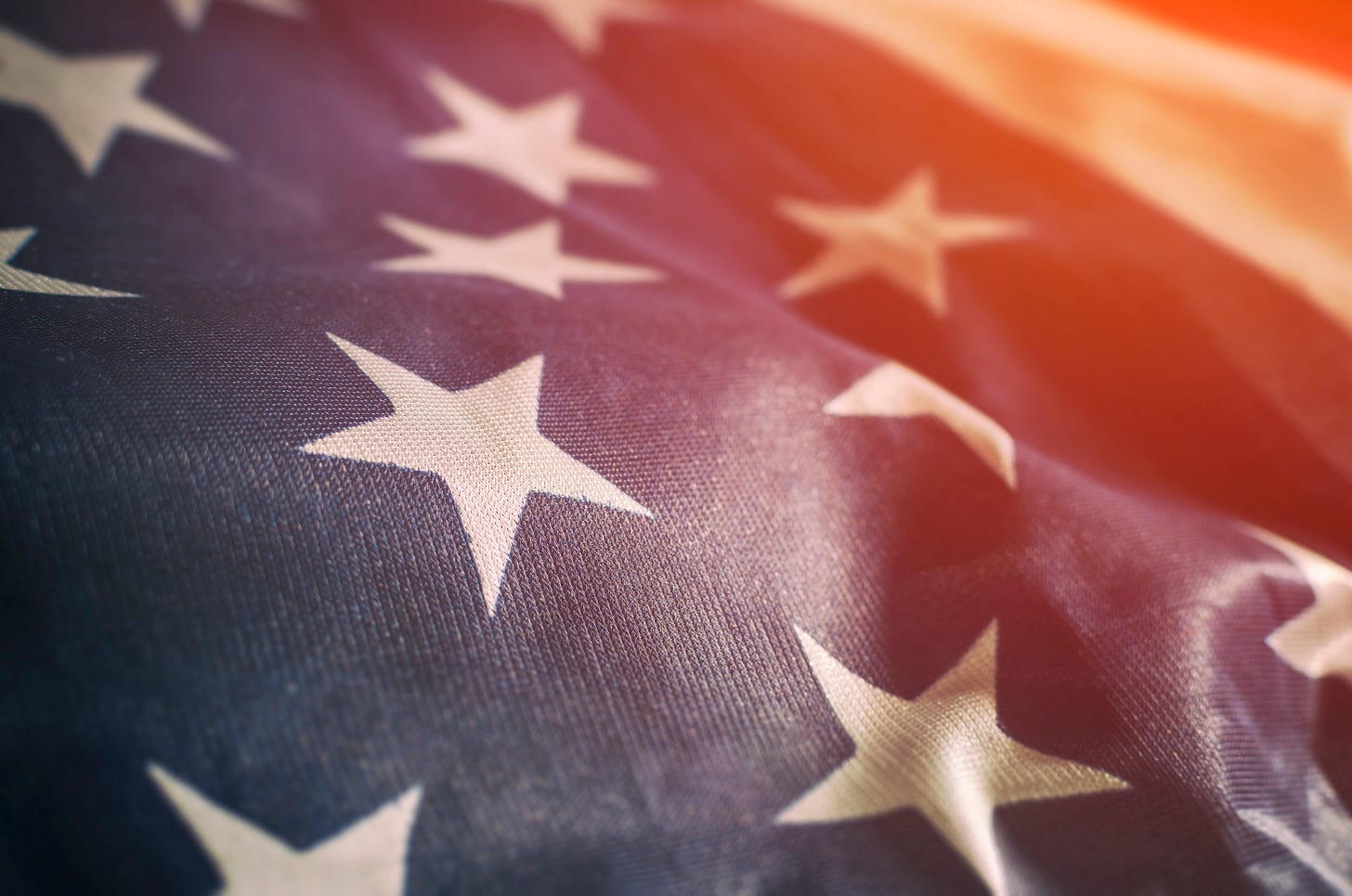
Two hundred forty-four years ago, a group of men met in Philadelphia under the cloud of war to pledge their lives, fortunes, and sacred honor to a cause greater than themselves. These men, by adding their signatures to a “unanimous Declaration of the thirteen united States of America,” became wanted men.
Some of them would become destitute in their defense of their cause. Some would lose their homes, farms, businesses, and families. But they believed in their cause and held fast. They delivered to the planet a unique nation — one not formed by blood and soil, but by the articulated idea that “that all men are created equal, that they are endowed by their Creator with certain unalienable Rights, that among these are Life, Liberty and the pursuit of Happiness.”
These men gave us ideals that even they could not fully live up to. They were so committed to unshackling themselves from Great Britain that they kicked cans down the road — cans filled with problems they agreed were problems, but for which they decided they could not address at the time lest they sacrifice unity in a greater cause.
One of those problems was slavery. Contrary to current revisionists, many of the founders of this nation knew they would have to address the problem. Current grievance mongers would have us believe the founders worked hard to lock slavery into the republic, but in fact, they did not. Even Thomas Jefferson, a slave owner, wrote of the need to end slavery. The three-fifths compromise and Electoral College served to reduce the power of the slaveholding states.
Americans who would now rewrite our founding lack the courage and character of our founders. They care not to do as our founders did and start a revolution, nor do they move to somewhere more of their suiting. Instead, they whine like spoiled children and tear down statues like religious fundamentalists. They are rebels without a cause and zealots without a clue.
The founding of our nation happened within eighty-eight years of the English Glorious Revolution. Our founders saw themselves as Englishmen entitled to the English Bill of Rights that their grandfathers were willing to fight for. Our founders, like their grandparents, were willing to fight and die for those rights too. Some of them did fight and die. The American Revolution was arguably a very conservative revolution — it did not want to throw off the old in favor of something new. The founders wanted the rights they thought they, as British subjects, should already have.
A few years later, the French too would revolt. But the French wanted to tear down the old and usher in a new regime with a new vision. Fueled by grievance, the revolution turned on the revolutionaries.
Unlike the French and their liberal revolutionary zeal, when the American revolution was over with victory won, instead of going their separate ways, our founders endeavored to form a more perfect union. They enshrined in their new government a bill of rights that echoed those rights they believed they had inherited but were denied by the king.
Our union is still not perfect. A union of imperfect people will never be perfect. But our founders created a nation as an ideal that we can look towards in pursuit of an ever more perfect union. We should not view the founders as bad, but as flawed men who knew it and we should commit our lives, fortunes, and honor to the continued quest of a more perfect union.





Perfect clarity for the current situation --- now stay off twitter!!!
Incredible--how you put into such eloquent words what my mumbled mind has tossed around so haphazardly!